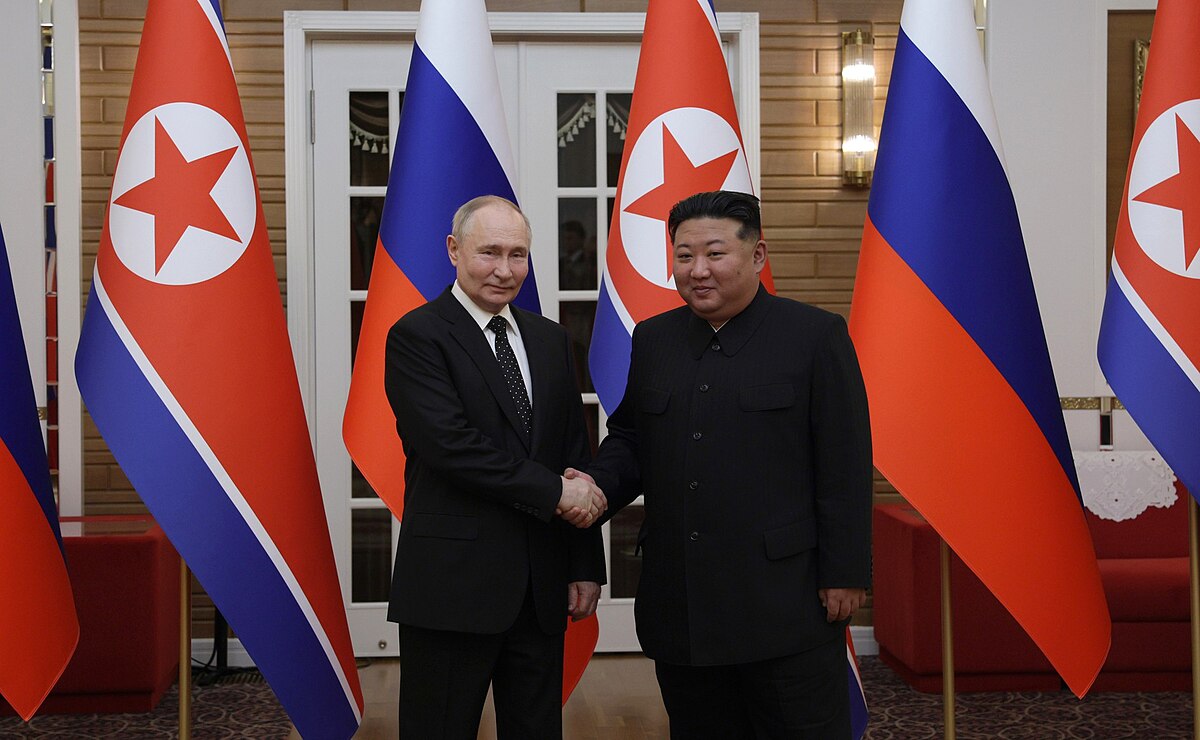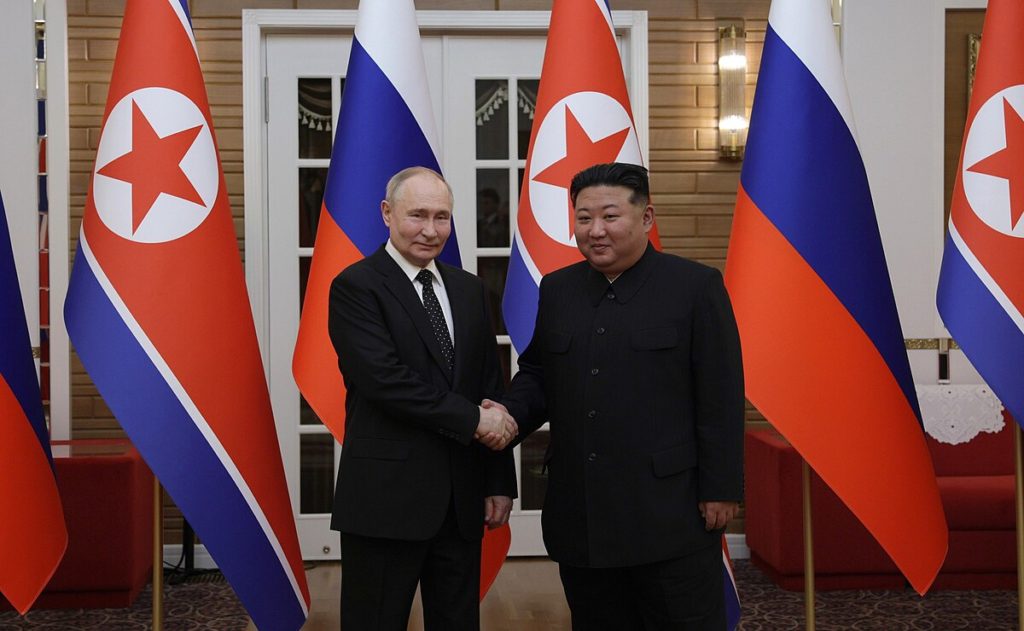Originally Authored at TheFederalist.com

Russian President Vladimir Putin and North Korean dictator Kim Jong-Un finalized a comprehensive agreement Wednesday to enhance strategic cooperation between their two countries, signaling a growing intent to challenge the U.S.-led world order.
Text of the pact released by North Korean state media indicates Moscow and Pyongyang have agreed to provide one another with “military and other assistance” in the event that “any one of the two sides is put in a state of war.” If there is a “direct threat of armed invasion” against either power, the two states plan to “operate the channel of bilateral negotiations for the purpose of adjusting their stands at the request of any one side” and communicate “feasible practical measures to ensure mutual assistance for removing the prevailing threat.”
Both sides further committed to not sign agreements with any “third country” that infringes on the other’s proclaimed “sovereignty [and] security.” The leaders also agreed to greater cooperation on trade, artificial intelligence, so-called “peaceful” nuclear energy, and other matters.
Putin and Kim Jong-Un signed the pact during Putin’s official visit to North Korea this week. The trip marked the first time Russia’s president has visited the Hermit Kingdom in nearly 24 years, according to Reuters. The two leaders previously met in Russia in September, in which they reportedly discussed “military cooperation, the war in Ukraine and Russian help for North Korea’s satellite programme.”
Moscow and Pyongyang have reportedly heightened the exchange of military-related goods with one another since the September summit. While North Korea has “increased shipments of munitions, and even ballistic missiles, to Russia,” the latter has “helped Pyongyang with its spy-satellite endeavors,” according to The Wall Street Journal.
An Alarming Pattern
Wednesday’s announcement isn’t the first time Russia has sought to enhance relations with adversarial states.
In a March 2023 summit with Chinese dictator Xi Jinping, Putin agreed to enhance bilateral ties with Beijing, which included a commitment to support one another’s “fundamental interests,” specifically on matters concerning “sovereignty, territorial integrity, security and development.” Under the framework, the two leaders affirmed support for opposing “all forms [of] hegemony, unilateralism and power politics, against cold war thinking, bloc confrontation and the creation of narrow formats against certain countries.”
Once a dicey relationship, mutual antagonism to the West has drawn Russia and China closer together — especially since the former’s invasion of Ukraine two years ago. Beijing has reportedly provided Moscow with components for weaponry that Russia’s military has used in its attempt to capture Kyiv. The United States sanctioned roughly 20 Chinese and Hong Kong firms over the matter last month.
China’s ties to North Korea are also noteworthy. Often viewing the Hermit Kingdom as an annoying neighbor that causes problems along its border, the Chinese Communist Party sees preserving the Kim regime as necessary to its national security. Regime collapse in Pyongyang would likely fuel a refugee crisis along the China-North Korea border and could produce a unified Korean peninsula friendly to the U.S. and Western powers — which Beijing strongly opposes.
Why America Should Care
The new agreement between Moscow and Pyongyang isn’t something that should be dismissed out of hand. While a potential cause of headaches for China, the burgeoning Russia-North Korea alliance — when combined with growing Sino-Russo relations — represents a stark challenge to the West.
As noted by the Center for Strategic & International Studies’ Victor Cha and Ellen Kim, the “military alliance” established by the new pact is based on Russia and North Korea’s “mutual opposition to the United States and the Western liberal order, rather than … on common ideology.” It’s designed to send a message to the United States and its allies that the current international framework is going to be challenged, whether they like it or not.
In fact, Putin and Xi all but admitted during a March 2023 meeting that the basis for growing relations between their nations is the goal of creating a “multipolar world order.”
Recent actions from the three adversarial states indicate their willingness to confront the existing status quo isn’t going away anytime soon. North Korea has continued testing ballistic missiles and abandoned reunification talks with South Korea earlier this year. Russia has increased its military presence in the Arctic Circle and Sea of Japan, while China has ramped up its aggression towards Taiwan, Japan, and the Philippines.
Not only do these activities place U.S. allies and troops in the region at increased risk, but they also attempt to gradually transform the existing status quo. Like the frog-in-boiling-water approach, the goal is to slowly acclimate the world to this aggressive behavior, thereby allowing these rival states to achieve their goals under the guise that such activities are normal.
The most alarming development in this strategy, however, is that these adversarial powers are recognizing the best way to achieve their respective goals is to ally with one another. The primary obstacle standing in the way of obtaining their objectives is the U.S.-led West. If having to sort out their respective differences and work together means that barrier gets removed, then that’s the course of action they’re likely to take.
Shawn Fleetwood is a staff writer for The Federalist and a graduate of the University of Mary Washington. He previously served as a state content writer for Convention of States Action and his work has been featured in numerous outlets, including RealClearPolitics, RealClearHealth, and Conservative Review. Follow him on Twitter @ShawnFleetwood
